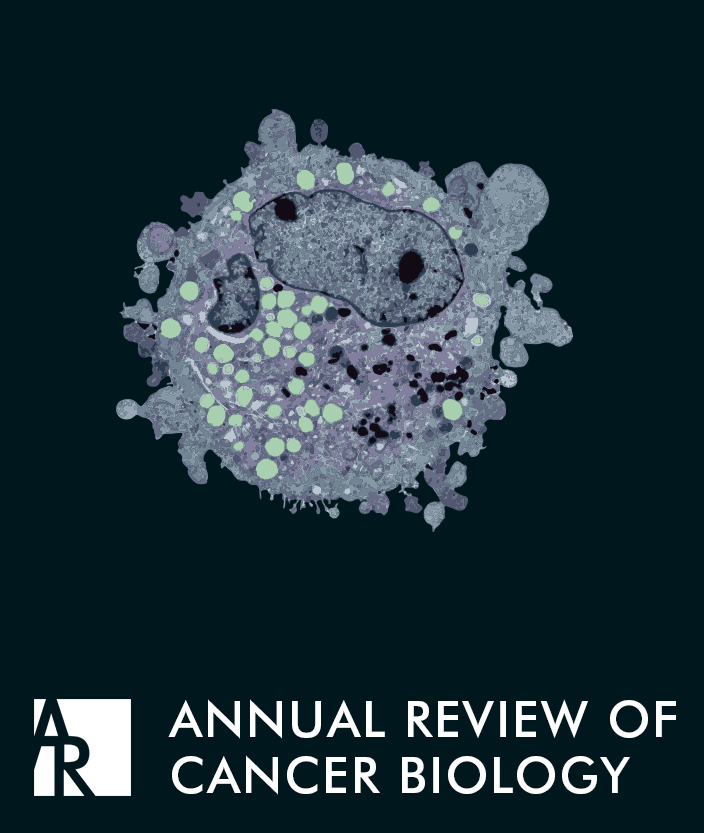热休克蛋白90:癌症适应的推动者
IF 4.7
2区 医学
Q1 ONCOLOGY
Annual Review of Cancer Biology-Series
Pub Date : 2019-03-04
DOI:10.1146/ANNUREV-CANCERBIO-030518-055533
引用次数: 50
摘要
许多致癌突变蛋白的稳定性和功能依赖于热休克蛋白90(HSP90)。这种独特的活性激发了20多年来HSP90作为抗癌靶点的探索。不幸的是,尽管高度优化的HSP90抑制剂的临床试验已证明对晚期癌症患者(最常见的是疾病的稳定)有适度的益处,但迄今为止,没有任何HSP90抑制剂显示出足够的疗效来获得美国食品药品监督管理局的批准。这篇综述讨论了这些药物有限成功的潜在原因,以及我们对HSP90日益复杂的理解如何为靶向其治疗癌症提供替代的、潜在的更有效的策略。首先,我们关注从模式生物中获得的见解,这些见解表明HSP90在支持癌症的适应性和异质性方面发挥着根本作用,这是癌症进化和获得耐药性的关键因素。其次,我们研究了HSP90在促进突变蛋白稳定性中的作用如何在遗传不稳定的肿瘤细胞中被靶向,以向免疫系统揭示其异常的外源蛋白质组。HSP90生物学的这两个新兴方面都表明,HSP90抑制剂的最有效使用可能不是高剂量杀死癌症细胞,而是与其他分子靶向治疗相结合,在适度的非热休克暴露下,限制癌症的适应能力。本文章由计算机程序翻译,如有差异,请以英文原文为准。
HSP90: Enabler of Cancer Adaptation
The stability and function of many oncogenic mutant proteins depend on heat shock protein 90 (HSP90). This unique activity has inspired the exploration of HSP90 as an anticancer target for over two decades. Unfortunately, while clinical trials of highly optimized HSP90 inhibitors have demonstrated modest benefit for patients with advanced cancers, most commonly stabilization of disease, no HSP90 inhibitor has demonstrated sufficient efficacy to achieve FDA approval to date. This review discusses potential reasons for the limited success of these agents and how our increasingly sophisticated understanding of HSP90 suggests alternative, potentially more effective strategies for targeting it to treat cancers. First, we focus on insights gained from model organisms that suggest a fundamental role for HSP90 in supporting the adaptability and heterogeneity of cancers, key factors underlying their ability to evolve and acquire drug resistance. Second, we examine how HSP90’s role in promoting the stability of mutant proteins might be targeted in genetically unstable tumor cells to reveal their aberrant, foreign proteome to the immune system. Both of these emerging aspects of HSP90 biology suggest that the most effective use of HSP90 inhibitors may not be at high doses with the intent to kill cancer cells, but rather in combination with other molecularly targeted therapies at modest, non-heat shock-inducing exposures that limit the adaptive capacity of cancers.
求助全文
通过发布文献求助,成功后即可免费获取论文全文。
去求助
来源期刊

Annual Review of Cancer Biology-Series
Medicine-Oncology
CiteScore
14.50
自引率
1.30%
发文量
13
期刊介绍:
The Annual Review of Cancer Biology offers comprehensive reviews on various topics within cancer research, covering pivotal and emerging areas in the field. As our understanding of cancer's fundamental mechanisms deepens and more findings transition into targeted clinical treatments, the journal is structured around three main themes: Cancer Cell Biology, Tumorigenesis and Cancer Progression, and Translational Cancer Science. The current volume of this journal has transitioned from gated to open access through Annual Reviews' Subscribe to Open program, ensuring all articles are published under a CC BY license.
 求助内容:
求助内容: 应助结果提醒方式:
应助结果提醒方式:


